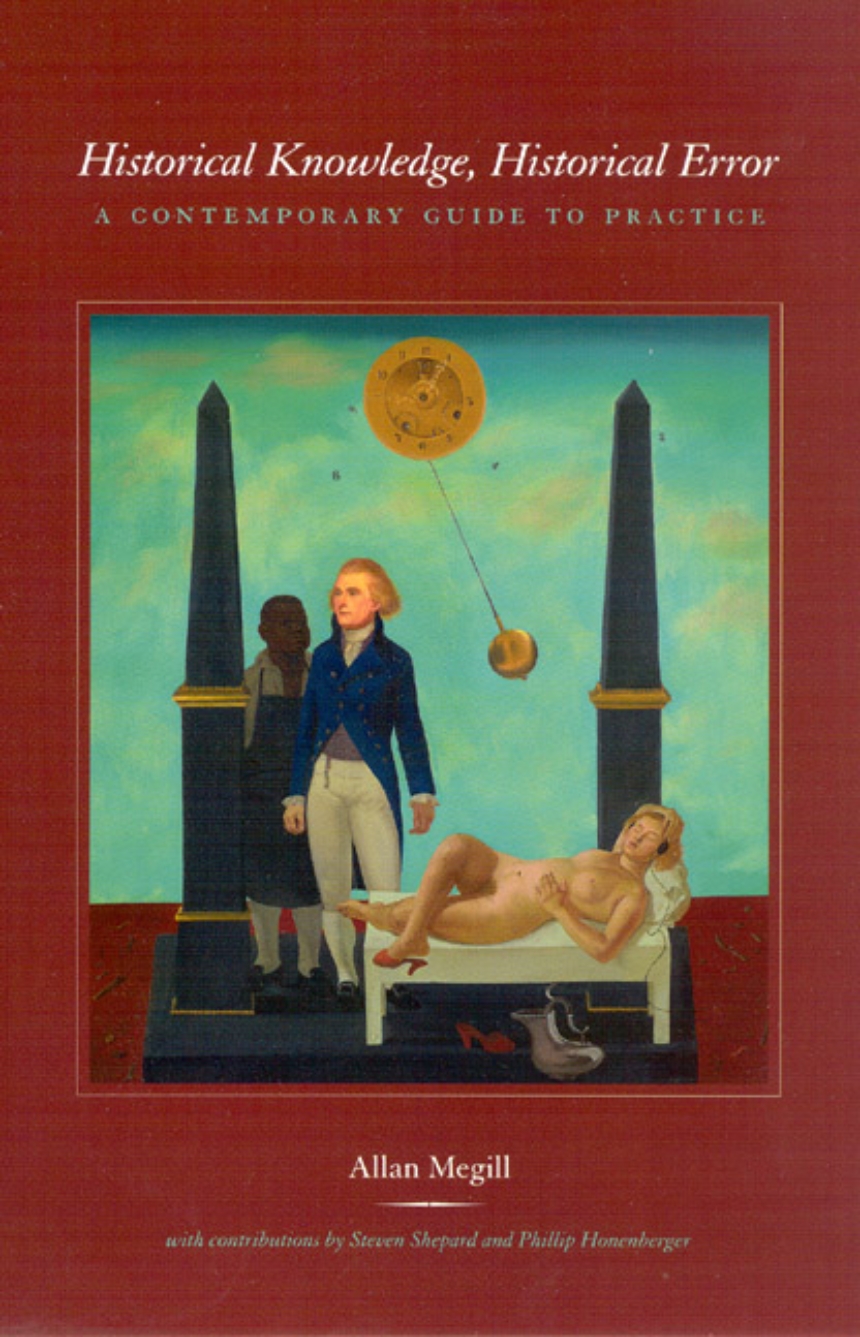Historical Knowledge, Historical Error
A Contemporary Guide to Practice
In the past thirty years, historians have broadened the scope of their discipline to include many previously neglected topics and perspectives. They have chronicled language, madness, gender, and sexuality and have experimented with new forms of presentation. They have turned to the histories of non-Western peoples and to the troubled relations between “the West” and the rest. Allan Megill welcomes these developments, but he also suggests that there is now confusion among historians about what counts as a justified account of the past.
In Historical Knowledge, Historical Error, Megill dispels some of the confusion. Here, he discusses issues of narrative, objectivity, and memory. He attacks what he sees as irresponsible uses of evidence while accepting the art of speculation, which incomplete evidence forces upon historians. Along the way, he offers succinct accounts of the epistemological road historians have traveled from Herodotus and Thucydides through Leopold von Ranke and Alexis de Tocqueville, and on to Hayden White, Natalie Zemon Davis, and Lynn Hunt.
304 pages | 3 tables | 6 x 9 | © 2006
History: American History, European History, History of Ideas
Literature and Literary Criticism: General Criticism and Critical Theory
Philosophy: Philosophy of Society
Reviews
Table of Contents
Acknowledgments
Introduction: The Need for Historical Epistemology
Part I. Memory
1. History with Memory, History without Memory
Memory versus History
History and the Present
Conflicting Attitudes toward the Past
History’s Legitimate Roles
2. History, Memory, Identity
Identity and the Memory Wave
Identity, Memory, and Historical Understanding
History, Memory, and the Unknown
Part II. Narrative and Knowledge
3. Does Narrative Have a Cognitive Value of Its Own?
The “Crisis” of Narrative
The Epistemological Limits of Narrative
4. Narrative and the Four Tasks of History-Writing
Explanation and Description
Narrative and Braudel’s Mediterranean
The Four Tasks of History-Writing
Part III. Objectivity and Speculation
5. Objectivity for Historians
Objectivity and Commitment
Defining Objectivity
6. A Case Study in Historical Epistemology: What Did the Neighbors Know about Thomas Jefferson and Sally Hemings?
(by Steven Shepard, Phillip Honenberger, and Allan Megill)
A Disputed Case
Inference to the Best Explanation
Thagard’s Three Criteria
A Fourth Criterion
Inferring the Relationship
The Case for Our Alternative Account
7. Counterfactual History: On Niall Ferguson’s Virtual History and Similar Works
Part IV. Fragmentation
8. Fragmentation and the Future of Historiography: On Peter Novick’s That Noble Dream
9. “Grand Narrative” and the Discipline of History
Four Ideal-Typical Attitudes toward the Overall Coherence of History
Four Postulates Suggested by the Preceding Account
10. Coherence and Incoherence in Historical Studies: From the Annales School to the New Cultural History
The Annales School and the Problem of Coherence
The Annales School: From Convergence to Multiplicity
Coherence as a Willed Commitment
Conclusion: Against Current Fashion
Notes
Index
